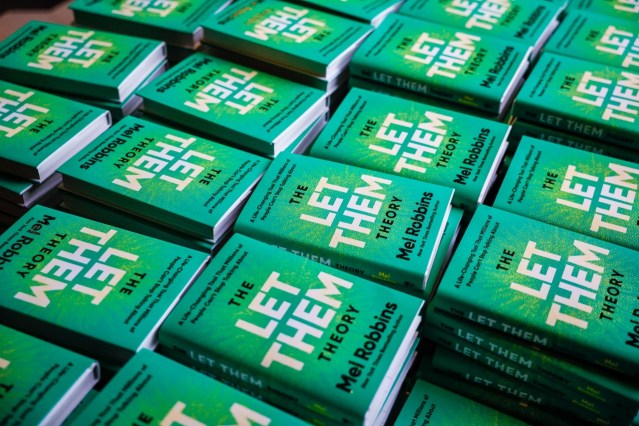Podéis leer cómodamente esta RESEÑA también aquí laquimeradegupta.tumblr.com/post/754071288490999808/oc%C3%A9ano-de-muerte
La vida está irremediablemente imbricada con el soporte físico que la cobija: el planeta Tierra. Solamente esta estrecha unión puede explicar cómo cosas (petróleo, metales y otros recursos naturales) y seres vivos (madera, pescado, etc.) se comporten ante nuestra voracidad de forma similar. En realidad lo que hay detrás es mucho más simple: I) en el caso aquellos recursos o seres vivos que son capaces de renovarse así mismos (bien completando su ciclo biogeoquímico y quedando otra vez disponibles para su uso; bien por que se reproducen y se renuevan las poblaciones), si se excede su capacidad de renovación, éstos se agotan. II) En el caso de los no renovable, simplemente su cantidad económicamente rentable se agotará en uno u otro momento.
image
En esta obra Callum Roberts nos va a hablar fundamentalmente de organismos marinos y cómo hemos afectado sus ecosistemas a través de la pesca y del calentamiento global. Sin embargo, detrás de todo el libro bulle como una fumarola de la dorsal mesoatlántica la crisis climática, el Peak Everything y la sexta extinción. Pero, si tuviera que resumir las preguntas que se plantea este libro en una solo diría: ¿Cómo hemos cambiado el océano y cómo podríamos revertir nuestros cambios más dañinos causados?
Roberts comienza su libro desde el inicio de todo. Si, desde el comienzo de la historia de nuestro planeta Tierra. Así demuestra con buen tino, a mi juicio, el inseparable binomio Tierra-Vida. De hecho, la más grande de las extinciones acontecida hasta el momento en el planeta, quizá tenga mucho que enseñarnos en nuestro momento actual: hace unos 251 millones de años desapareció el 90% de las especies conocidas en el registro fósil ¿Por qué? Aún es tema de debate, pero todo apunta a un culpable: un período descontrolado de calentamiento global y acidez en los océanos.
PRIMERA PARTE
¿Realmente es tan dañina la pesca para los ecosistemas marinos? Tratemos de resumirlo en pocas líneas. A finales del siglo XIX se pescaba muchísimo más por unidad de esfuerzo que hoy en día y así se puede observar en la principal potencia marítima de ese siglo: Reino Unido (Fig. 1.). Solamente se ha conseguido revertir esta tendencia ampliando las zonas en las que se pesca (el ártico y norteamérica). Se comenzó pescando a los individuos más grandes, maduros y por tanto fértiles de las distintas especies. Se pasó a pescar con métodos cada vez menos selectivos y poderosos que lo único que hicieron fuer incrementar los daños en los fondos marinos, fondos en muchas ocasiones esenciales para la viabilidad de huevos y larvas de peces y de muchos organismos marinos. Las dragas o los arrastreros destrozan la pesca del futuro. Así, los tamaños promedio de las poblaciones han disminuido a lo largo del siglo XX y la microevolución comienza a favorecer tamaños corporales más pequeños y ciclos de vida más rápidos.
Pero no solamente es la desaparición de poblaciones y especies de peces de todo tipo, moluscos, hidrozoos, corales, algas, etc., no. La desaparición de estos organismos implica que ya no hay nadie que consuma todo el fitoplancton producido en las zonas de afloramiento, en los trópicos y, estacionalmente, en las zonas de clima templado y frío. Ya no existen suficientes peces herbívoros que den cuenta del fitoplancton. El zooplancton se desarrolla algo más lentamente y tampoco puede con él. El cambio climático ha incrementado la potencia de los vientos y éstos son capaces de desplazar decenas de kilómetros los blooms algales, quedadon además fuera del alcance físico del zooplancton. Este es uno de los factores que ha contribuido al incremento de las llamadas “zonas muertas” en los mares y océanos: zonas donde parte de la columna de agua (o toda) presenta muy bajas o nulas concentraciones de oxígeno, produciéndo mortalidades masivas de los organismos pelágicos y bentónicos. La concentración de oxígeno disminuye cuando el fitoplancton va muriendo y una enorme cantidad de materia orgánica desciende por la columna de agua mientras es atacada por bacterias. La materia orgánica es consumida por las bacterias que, en el proceso, agotan el oxígeno. Ocurre algo similar en los deltas y en las lagunas costeras que reciben inmensos aportes de aguas dulces cargadas de nitratos y fosfatos provenientes de la agricultura. El fenómeno es idéntico, solo que en este caso la fertilidad explosiva del fitoplancton no viene dada por un afloramiento de aguas profundas, sino que viene dada por la enorme cantidad de nutrientes y de materia orgánica vertida. El río Mississipi, el Po, el Tamesis, el Indo, el amarillo y otros grandes ríos poseen en sus desembocaduras enormes zonas muertas. En este caso tienden a ser estacionales, pero cada año duran más.
Ejemplos: Namibia y Bengala (aunque hay más de 400 zonas muertas en el planeta, entre estacionales y permanentes). A principios de los noventa, una intensa floración de fitoplancton mató al 80% de la población de merluza del cabo y provocó el colapso de la pesca en la zona. Aun así, no parece haber voluntad política para enfrentar esta situación. Por ejemplo, las cuotas de pesca anual de la Unión Europea son un tercio más altas de las recomendaciones técnicas.
Dos grandes amenazas: la subida del nivel del mar y la acidificación.
Entre 1870 y 2000, el nivel del mar se incrementó aproximadamente 20 cm. La mayor parte del mismo se debe a la capacidad de absorción de calor por parte del agua. Así, el increíle aumento en las emisiones de CO2 —y otros gases invernadero— y su efecto sobre el incremento de la temperatura media del planeta ha sido, en buena parte, frenado por las masas de agua terrestres. Este aumento podría llegar a los 2m en promedio a final de siglo. Esto implica que, ya a mediados de este siglo, temporales marítimos puedan penetrar centenares de metros en tierra firme y que muchas naciones insulares vna peligrar su existencia. Implica la construcción de costosas infraestructuras que protejan a los centenares de millones de personas que habitan tierras bajas. Todo ello en un contexto de energía y recursos limitados. Sin embargo, los ecosistemas costeros naturales son capaces de frenar y/o amortiguar esta subida del nivel del mar y los peores efectos de los temporales: los manglares, las marismas, lo estuarios, las albuferas, las barras y dunas litorales. ¿Por qué no recuperarlos y utilizarlos como sistemas de protección low cost? Obviamente el modelo turístico imperante tendrá que cambiar.
Un escenario posible es el derretimiento de dos grandes casquetes de hielo en Groenlandia y la Antártida Occidental. Si se derritieran, los mares se elevarían 9 metros. Y hay muchos puntos de no retorno que pueden haberse activado sin que lo conozcamos todavía y puede que alguno de los escenarios más pesimistas ya estén en marcha sin que podamos ya detenerlo.
Volvamos al CO2. Además de temperatura, el agua “absorbe” este gas así que la reducción térmica gracias a mar es aún mayor. Pero, ¿a qué precio? Cuando el CO2 se disuelve en el mar, produce HCO3- y H+ disminuyendo así el pH del agua oceánica (recordemos que el pH es la cantidad de iones H+ disueltos). Desde la revolución industrial, el pH del océano ha disminuido en 0.1 unidades. La mayor parte de esta caída ha ocurrido solo en las últimas décadas. Armand y Kim (2020) estiman que, a través de su efecto actual sobre la nutrición y los ingresos, la acidificación de los océanos podría estar detrás de una cantidad considerable de muertes neonatales en países de ingresos bajos y medianos. Además, la acidificación supondrá la desaparición de centenares de miles de especies de moluscos, corales, hidrozoos y organismos unicelulares que utilizan el carbonato de calcio, cuya precipitación sobre la materia orgánica viva es sensible al pH ambiental.
La buena noticia es que en el pasado hemos experimentado periodos de acidificación similares al actual. Concretamente, ocurrió en el Máximo Térmico del Paleoceno-Eoceno, y la vida se adaptó bien. La mala noticia es que este cambio ocurrió durante decenas de miles de años y no durante unas pocas décadas.
Estrés y contaminación. Una combinación letal.
Todas las formas de contaminación representan un peligro para las cadenas alimentarias y los ecosistemas e incluso podrían ampliar el alcance y frecuencia de las zonas muertas y del cambio climático. Debemos considerar contaminantes orgánicos persistentes (como el DDT, los PCBs y otro compuestos), derrames de petróleo, productos farmacéuticos, plásticos y metales pesados como el mercurio o el cadmio. Estos contaminantes se vierten a los océanos desde los ríos y aguas residuales, hasta en cruceros, plataformas petrolíferas y petroleros. Muchos de ellos son bioacumulables (compuestos orgánicos persistentes, microplásticos o metales pesados) y, por tanto, los encontramos en aquellos organismos situados en la cúspide de las cadenas tróficas: justo los animales sobre los que la pesca ha intesificado más su acción. Además, también se acumulan en la fina y compleja capa superficial del océano. La Sea-suface microlayer (SML) es una capa de unos pocos milímetros de espesor que concentra muchas sustancias y que, desde el punto de vista biológico, es muy distinta de los siguientes metros de la columna de agua. Esto es por 2 razones: I) dada la tensión superficial del agua, en esta capa pueden adherirse múltiples larvas y huevos de muchas especies. Esto significa que es una capa esencial para el ciclo vital en lo océanos, y II) concentra sustancias de todo tipo: desde metales pesados, hasta contaminantes o nutrientes (lípidos, nucleótidos, aminoácidos, metabolitos tóxicos como el Dimetilsulfóxido (DSMO), etc.
Especialmente hiriente el problema de los plásticos. Al menos ⅔ de los animales encontrados muertos tienen plástico en sus entrañas y hay al menos hay 6 veces más plástico en peso en el océano que zooplancton. Un problema añadido es que el plástico se fragmenta en diminutos trozos capaces, incluso, de penetrar en nuestras células con holgura. Estos microplásticos pasan mucha parte de su “vida” en la SML por lo que han concentrado en su superficie enormes cantidades de sustancias tóxicas. Ingerir microplásticos es ingerir un cocktail explosivo de disruptores endocrineo, teratógenos y metales pesados.
Para colmo, además, también somos ruidosos. El sonido es una herramienta esencial para la vida marina. Es utilizado por mamíferos marinos, cefalópodos, muchos peces, crustáceos, etc., para la navegación, reproducción, y búsqueda de alimentos. Nuestras ruidosas incursiones en el mar han dejado a muchas ballenas desorientadas y/o con sus sistemas auditivos destrozados.
Otra forma de “contaminación” es la inserción de especies ajenas a un ecosistema dado. Las embarcaciones sacan especies de su hábitat y las introducen en otro cuando descargan ella agua de lastre. Algunas de estas especies exóticas son agresivas e irrumpenen los ecosistemas locales. Tal es el caso del pez león rojo en el Caribe. Al no ser presa de ningún depredador de la zona, ha arrasado con distintas especies. Suele alimentarse de los peces jóvenes de los grandes depredadoresque solemos comer.
Todos este estrés para los peces reduce su inmunidad y expone a la vida marina a enfermedades. Una plaga en el Caribe mató al 75% del coral blando. Se supo con posterioridad que el causante era una bacteria fecal humana proveniente probablemente de los resorts recientemente abiertos.
SEGUNDA PARTE
¿Hay esperanza?
Callum Roberts dedica la segunda parte del libro a analizar las potenciales soluciones a los problemas planteados en la primera parte. Sin embargo, como anticipo decir que es de la opinión que toda “solución tecnológica” genera más problemas de los que resuelve. Veamos cómo lo argumenta.
El primer intento de aliviar la sobrepesca probablemente sea precisamente evitar la pesca y acudir al pescado de acuicultura, una técnica con al menos 4500 de historia. Sin embargo se requieren de hasta 20Kg de pescado salvaje para producir un solo kilo de pescado criado en cautividad si este pescado es carnívoro. La acuicultura es algo más eficiente si el pescado es “vegetariano”, pero éstos no es son valorados comercialmente. La industria ha logrado incrementar su eficiencia y la proporción promedio de pescado salvaje utilizada por cada kilo de pescado cultivado ha pasado de 1:1 a 0.63:1. Pese a ello, la acuicultura puede ser un foco productor de nuevas enfermedades infecciosas: las condiciones de alta densidad y el elevado uso de medicamentos incrementar la probabilidad de que esto ocurra. También son focos generadores de bacterias resistentes a antibióticos. Además, la gran cantidad de nutrientes vertidos en las zonas de cultivo, junto con la enorme cantidad de deshechos de estos animales, suelen producir zonas muertas en el fondo del lugar donde se sitúan las piscifactorias.
Por lo que respecta al plástico, varios países han prohibido los plásticos de un solo uso y otros se utilizan la basura recogida del mar para producir energía, pero ello no ha evitado que la contaminación por plásticos esté llegando a niveles realmente distópicos. No parece que nadie quiera gastar dinero en revertir décadas de uso del océano como vertedero comunitario. No parece que el comportamiento individual y las suaves restricciones vayan a solucionar un problema que requiere fuertes cantidades de dinero y de normativas reguladoras..
Por su parte, la contaminación por eutrofización que causa zonas muertas en estuarios, desembocaduras de ríos, lagunas costeras y zonas de afloramiento es reversible en buena parte si cesan los vertidos. En algunos casos se han propuesto, dice Roberts, soluciones más encaminadas a la “venta de acciones” que a la solución real del problema (como aquellas que proponen bombear oxígeno en profundidad).
Con respecto al calentamiento global, Roberts describe una serie de propuestas tecnológicas que se postulan para intentar reducir o paliar el cambio climático. Parte de la solución son las energías renovables. Ve con bueno ojos especialmente los parques eólicos, ya que son económicamente viables e implica amplias zonas marinas vetadas a la pesca que pueden servir como santuarios en los cuales las poblaciones de muchas especies puedan recuperarse y aumentar su tasa reproductiva y puedan repoblar, así, otras partes del océano. También ve viable bombear CO2 mientras se extrae petróleo y gas natural. Sin embargo, las opciones mareomotrices o bombear CO2 líquido al fondo del mar son, además de económicamente poco viables, peligrosas para la biodiversidad y, en el caso del bombeo de CO2 existe el peligro de aumentar la acidificación. También las opciones de ingeniería climática son poco más que hipótesis de laboratorio que no tienen en cuenta la complejidad de los ecosistemas: crear nubes artificiales y aumentar la cantidad de aerosoles en la atmósfera pueden agudizar sequías, la extracción de silicatos para la producción de bicarbonato por absorción de CO2 es muy costosa y la fertilización del océano con hierro para absorber CO2 mediante el fitoplancton no ha demostrado en décadas ser realmente efectivo.
Las marismas, los manglares y los lechos de algas marinas atrapan colectivamente la mitad de las emisiones de CO2 de la red de transporte marítimo del mundo,y apenas cubre una quinta milésima parte de la vegetación terrestre del mundo. Según el informe del Banco Mundial The Sunken Billions, podríamos producir hasta un 40% más solo con pescar menos. Una red de áreas protegidas cerca de las pesquerías también podría aliviar mucho las presiones que ejercemos sobre la vida marina.
¿Esperanza? Roberts no lo dice, pero su pesimismo en las formas basadas en la iniciativa privada y el “solucionismo de mercado” dejan entrever que, o bien se realiza un cambio profundo en la forma y el modo de producir, manejar y tratar con los océanos y el conjunto del planeta, o bien las cosas va a empeorar mucho antes de, poco a poco, empezar a mejorar aunque, quizá, usted ya no esté aquí para verlo. Ni usted tampoco






















